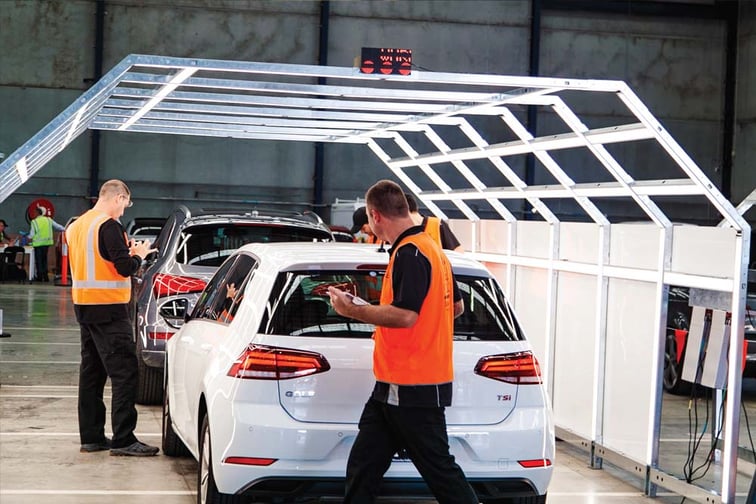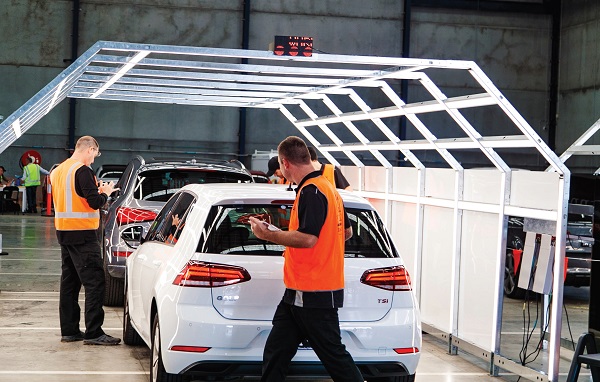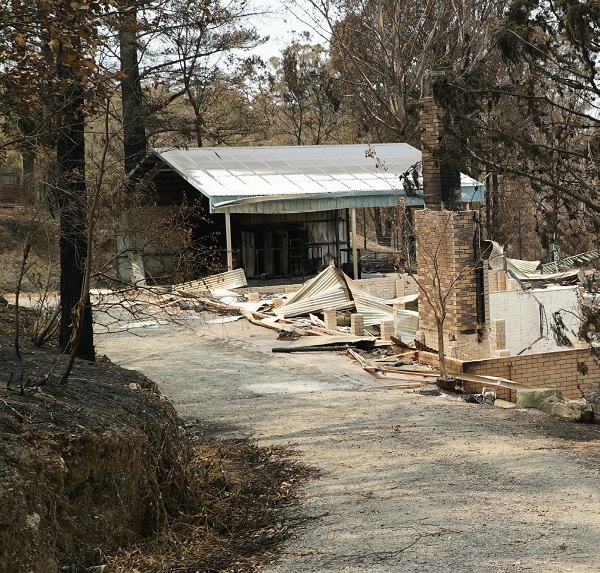

The 2019–2020 weather event season isn’t yet over, and it’s already proven to be a landmark one for brokers and insurers. The bushfires that began in September 2019, the hailstorms in December, the heavy rains in January and the flooding that followed in February have all increased the focus on incident response across the country. What can insurers do to ensure their customers are supported in the face of disaster, and how can brokers aid in the process?
For Luke Whenman, executive manager of commercial property and specialty claims at Vero, these are day-to-day concerns. With experience in business and process improvement before he entered the insurance business six years ago, Whenman has a keen understanding of the importance of meeting customer needs. He saw insurance as a relatively untapped field; the regulation surrounding the industry naturally meant that many insurers had been slow to adapt.
Nonetheless, there was opportunity for a big customer impact. Insurance, Whenman explains, has evolved beyond the simple filing of a claim, then receiving a cheque in the mail a few months later.
“Today, insurers and brokers alike are much more hands-on and involved in the whole process of supporting the customer through a claim,” he says. “There’s been a real shift towards making sure we as an industry are proactive rather than reactive – having response plans in place in advance means that we can roll out a swift and tailored response, as we’ve seen with the events over the last few months.
“In practical terms, this means that as a business, we proactively plan for weather events before they hit. We focus on hiring and training permanent staff, supplemented by short-term support to help with claims in the absolute peak periods. Staff and management teams also actively test the response plans for major incidents through simu-lations. Geographic considerations, policy responses, and supplier capacity and readiness are accounted for.
“We update our plans every year to reflect the latest developments within the field. Planning for the worst-case scenario means we’re much more adequately prepped. The simulation we ran last year included pretty much everything we’ve had this season.”
In addition to this, Vero also deploys customer support teams and establishes hail assessment centres in disaster areas to enable claims to be handled in the moment, rather than delayed until weeks or months later.
“As part of the Suncorp Group, we’re able to leverage the wider organisation and provide assistance to customers who’ve been affected by these disasters,” Whenman explains. “Our customer support teams are also able to tailor their services, depending on customer needs.”

How brokers can help
Claims are when the whole process comes together. It’s the ultimate test of any insurer, and brokers have a critical role to play during the incident response. As trusted advocates, brokers are able to eff ectively triage claims, helping give Vero a better sense of the priority and specialised needs, as well as aid the swift resolution of simple claims through Vero’s One Touch claims process and broker settlement authority.
“There’s been a real shift towards making sure we as an industry are proactive rather than reactive” Luke Whenman, Vero Insurance
“We know from our own data and SME Insurance Index research that customers have a much higher satisfaction with the claims experience when a broker is involved,” Whenman says.
Brokers understand the complexity that goes behind an insurance response – for example, if there are challenging situations that arise during the process, they’re able to manage client expectations upfront based on the insurance policy they’ve purchased.
“Brokers are often part of the local community,” Whenman says. “They know the situation and the community, and in turn, they help us better meet the community’s unique needs and engage with them more effectively – they play the part of advocate.”
 Whenman also points out the valuable role brokers play in identifying customers who might be experiencing vulnerability as a result of the incident. It’s an issue that was prominently discussed during the Hayne royal commission and one that Whenman is passionate about seeing carried out.
Whenman also points out the valuable role brokers play in identifying customers who might be experiencing vulnerability as a result of the incident. It’s an issue that was prominently discussed during the Hayne royal commission and one that Whenman is passionate about seeing carried out.
“People experience vulnerability for a variety of reasons at different points in their life,” he says. “During a catastrophe is when people are most at risk – by working with brokers on the ground, we’ve had a much easier time identifying customers who are either vulnerable or at risk. In turn, that means we can refer them to specialists who have the relevant training to look after them eff ectively, as well as expediting payments and claims processing.”
Of course, Whenman is keenly aware that brokers need the support of insurers to be able to work to their best capacity. Without the right tools, brokers won’t be able to deliver according to their clients’ needs.
“We scale up when necessary to ensure we’ve got adequate resourcing and capability,” Whenman says. “During a normal business cycle, we’d expect to meet all SLAs, regardless of claim volume.”
“We know ... that customers have a much higher satisfaction with the claims experience when a broker is involved” Luke Whenman, Vero Insurance
Additionally, Whenman and his team at Vero are working on ways to simplify the way claims are managed for brokers. A new digital lodgement option was launched late last year, allowing commercial property natural hazard and event claims to be lodged in a simple online form. Over the next few months, this platform will be rolled out across Vero’s other products.
Managing the future of insurance
Looking ahead, Whenman believes the industry is facing a number of challenges that will need to be addressed, including policy coverage, underinsurance, and rising community and regulatory expectations. These issues, combined with the rising severity of natural hazard events, will see insurers and brokers to continue to evolve.
Whenman also believes the increasing emphasis on prevention and risk mitigation is a positive move forward for the industry, and Vero is working to help brokers become more involved in risk management through tools such as its Risk Profiler.
“Brokers play an important role in helping clients select the right option – this is another reason working with brokers is so crucial for us,” Whenman says. “It helps us mitigate many of these issues, and in turn provide a response that is tailored to the client’s needs.”
Though he’s aware of the challenges ahead, Whenman is nonetheless positive about the future of the industry.
“It’s about delivering exceptional claims experiences for our brokers and clients during the moments that matter, listening to their feedback, and continuing to raise the bar in how Vero best responds,” he says.

